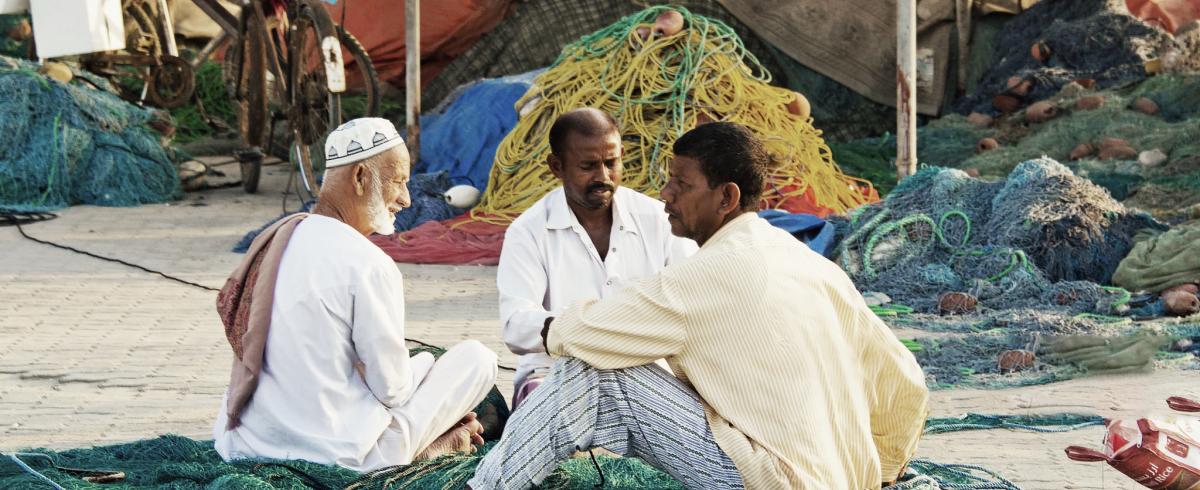
Categories to Explore
Welcome to the Resource Library. Here you will find a range of resources that you can use to support your small-scale fishery and community. Use the buttons above to browse resources by category or use the filters on the right to sort resources.
Social protection for small-scale fisheries in the Mediterranean region
This review includes the findings of a desk study, complemented by consultation and validation missions, on social protection systems in place and available to small-scale fishers in Mediterranean riparian states, and it outlines the specific cases of five Mediterranean countries (Albania, Egypt, Lebanon, Morocco and Tunisia), setting out best practices and sharing recommendations.
The role of aquatic foods in sustainable healthy diets
This discussion paper aims to build consensus on the role of aquatic foods in sustainable healthy diets, presenting the breadth of evidence available to inform and steer policy, investments and research to make full use of the vast potential of aquatic foods in delivering sustainable healthy diets and meeting the Sustainable Development Goals (SDGs).
Marine Tenure and Small-Scale Fisheries: Learning from the Bangladesh Experience and Recommendations for the Hilsa Fishery
This desk study provides a summary of the Bangladesh experience in small-scale fisheries and marine tenure.
Marine Tenure and Small-Scale Fisheries: A Sourcebook on Good Practices and Emerging Themes
Marine Tenure and Small-scale Fisheries: A Sourcebook of Good Practices and Emerging Themes (Sourcebook) draws on findings from scholarly research, policy documents, development projects, and publications by development practitioners, researchers, and nongovernmental organizations to explore good practices and emerging themes in marine tenure and small-scale fisheries.
Characteristics and performance of fisheries co-management in Asia
The overarching objective of this report was to determine, from current evidence and experiences from the region, a view of co-management application and performance.
New and emerging technologies for sustainable fisheries: A comprehensive landscape analysis
This document provides a landscape analysis of the technological ‘state of play’ as well as current activity relating to the use of new and emerging technologies to help solve common fishery-related challenges at the global, regional and national levels, including the individuals, organizations, countries and technology service providers engaged in these activities. Activities range from on-the-water technical implementations of cameras or other sensors to collect data, to regional scale efforts to monitor illegal fishing using satellites, to global scale efforts to streamline and modernize data management systems.
Policy Brief - Small-scale tuna fishery development: Lessons learned and way forward
The aims of this policy brief are to: identify lessons that have been learned in the many attempts to develop small-scale tuna fisheries in the Pacific region; and use those lessons to provide guidance to fisheries agencies and donors for future efforts.
Handling seafood in the Pacific Islands: Information sheets for fishers, vendors and consumers
This guide contains five information sheets about how to handle and care for fish as a fisher, fish vendor or customer, to make sure that fish stays fresh, healthy and safe for human consumption.
Actioning the Monterey Framework: Stories from Around the World
The Monterey Framework is a collectively agreed-upon definition of socially responsible seafood with input and backing from over two-dozen environmental and human rights organizations and voluntary commitments from an equal number of seafood businesses.
Pacific handbook for gender equity and social inclusion in coastal fisheries and aquaculture
This handbook is designed to give practical guidance on improving gender and social inclusion in coastal fisheries and aquaculture for staff working in fisheries agencies in Pacific Island countries and territories. It focuses on the responsibilities of Pacific Island governments to help promote sustainable development outcomes for all people relying on coastal fisheries and aquaculture for their livelihoods.
